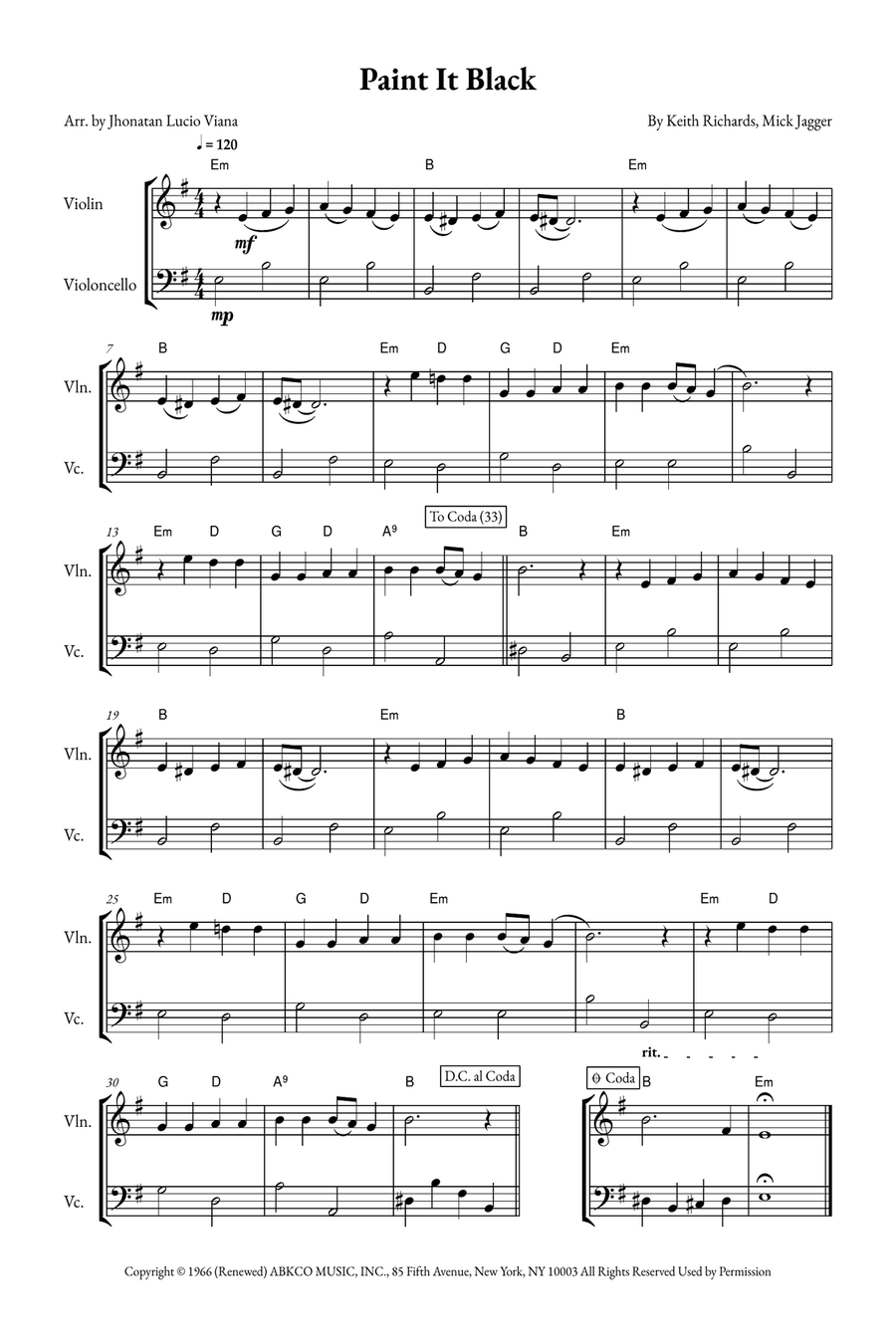Cello,Instrumental Duet,Violin - Level 1 - Digital Download SKU: A0.1429872 By The Rolling Stones. By Keith Richards and Mick Jagger. Arranged by Jhonatan Lucio Viana. 20th Century,Classical,Contemporary,Film/TV,Rock. 3 pages. JLVPartitura #1010509. Published by JLVPartitura (A0.1429872). Paint It Black (Rolling Stones) for Duet Violin and Cello + Chords.Description:Explore the magic of this iconic arrangement for the song Paint It Black by the Rolling Stones. Thrilling and engaging, this high-quality PDF score brings the unique energy of the music in the key of Em (E minor), providing an authentic performance experience. Additionally, follow along with the included MP3 audio for inspiring sonic reference. Don't miss the opportunity to add this masterpiece to your repertoire and let your musical creativity flourish.Key Features:Exciting arrangement of the song Paint It Black by the Rolling Stones.Notation in Em (E minor), the original key of the song, for an authentic interpretation.High-quality PDF format for easy viewing and printing.Included MP3 audio for inspiring sonic reference.Beginner-friendly arrangement.Suitable for musicians of all skill levels.rolling stones sheet music, paint it black arrangement, pdf sheet music in e minor, quality sheet music, rolling stones arrangement, sheet music with mp3 audio, exciting sheet music, classic rolling stones music, rolling stones sheet music, paint it black arrangement, rolling stones classic, paint it black sheet music, rolling stones sheet music, musical arrangement paint it black, paint it black cover, instrumental version paint it black, sheet music for musicians paint it black, digital sheet music paint it black, musical notes paint it black, classic rolling stones sheet music, rock rolling stones sheet music, famous rolling stones sheet music, popular rolling stones sheet music, sheet music for rolling stones band, sheet music for rolling stones ensemble, sheet music for rolling stones musical group, paint it black guitar sheet music, paint it black drum sheet music, paint it black bass sheet music, rolling stones guitar sheet music, rolling stones drum sheet music, rolling stones bass sheet music, paint it black instrument arrangement, rock music sheet music, classic rock sheet music, classic rolling stones sheet music, rolling stones rock sheet music, famous rolling stones guitar sheet music, famous rolling stones drum sheet music, famous rolling stones bass sheet music, famous rock music sheet music.
